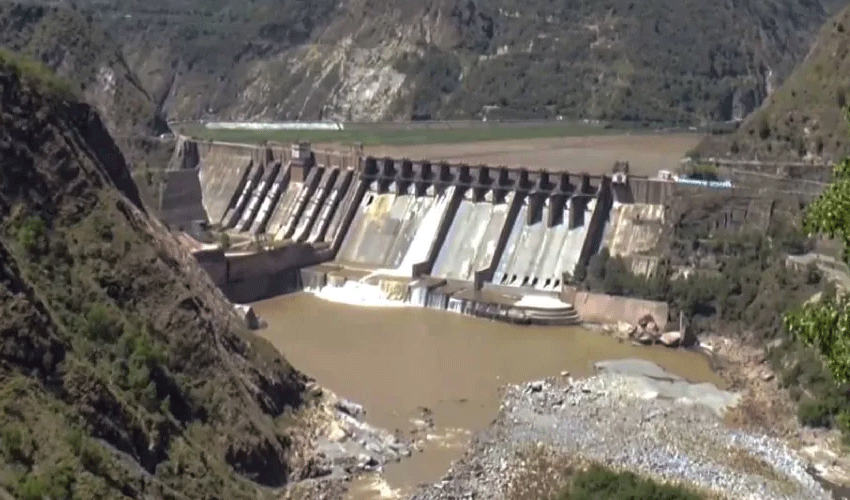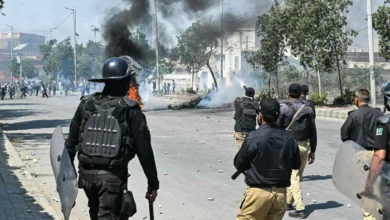India has drastically curtailed the flow of water from the Baglihar Dam on the Chenab River to Pakistan, raising fears of a potential water crisis in parts of Punjab and Azad Jammu and Kashmir.
The latest move comes in the wake of India’s suspension of the Indus Waters Treaty (IWT), further straining already fragile ties between the two nuclear-armed neighbours.
According to officials from Pakistan’s Irrigation Department, the water inflow at Head Marala on the Chenab River has plummeted from 87,000 cusecs to just 10,800 cusecs in the past 24 hours. The abrupt drop has sparked concerns of acute shortages downstream, potentially affecting irrigation and drinking water supplies in the Jhelum and surrounding regions.
Indian media reports have also suggested that India is preparing to halt water release from the Kishanganga Dam in the Gurez Valley, a tributary of the Jhelum River.
Any disruption to the flow from Kishanganga would likely further aggravate the situation in the already water-stressed region of northern Pakistan.
These developments follow a series of provocative moves by New Delhi, including the expulsion of Pakistani diplomatic staff, cancellation of Pakistani visas, and abrogation of its commitments under the 1960 Indus Waters Treaty.
The steps come in the aftermath of a deadly attack on Indian tourists in Pahalgam on April 22, which India has attributed to groups allegedly operating from Pakistani soil—a claim Islamabad strongly denies.
Water terrorism
In response, Pakistan’s National Security Committee (NSC) has termed India’s water blockade as an act of “water terrorism” and warned that any attempt to restrict Pakistan’s rightful share of water under international agreements would be viewed as an act of war.
“Water is Pakistan’s lifeline. The unilateral stoppage of river flow is not just a violation of treaty obligations, but a direct threat to the peace and stability of the region,” read a statement issued by the NSC after an emergency meeting chaired by Prime Minister Shehbaz Sharif.
The NSC has also decided to limit India’s diplomatic presence in Pakistan to 30 officials and is expected to take the matter to the United Nations and other international forums.
Meanwhile, India has defended its actions. A senior Indian government official, quoted in local media, stated, “Since India has kept the IWT in abeyance, we are exploring all possible ways to use our river waters for the benefit of our citizens.” He also indicated that maintenance work at the Kishanganga project would require complete cessation of water release downstream, though no specific timeline was provided.
Diplomatic observers have noted with alarm the rapid deterioration of relations between Islamabad and New Delhi, especially following Pakistan’s recent test of a surface-to-surface ballistic missile over the weekend—an event that coincided with India’s water restrictions.
UN Secretary-General António Guterres and the US State Department have both called for calm, urging both sides to de-escalate tensions and resume dialogue. However, India’s stance remains unyielding, with no indication of willingness to revisit its recent decisions.
The Indus Waters Treaty, brokered by the World Bank and signed in 1960, has long been considered a model of water-sharing diplomacy. Under the agreement, Pakistan has rights to the waters of the Indus, Jhelum, and Chenab rivers, while India retains control over the Ravi, Sutlej, and Beas. The suspension of the treaty marks an unprecedented breach and raises questions about the future of water security in South Asia.
Environmental experts have also voiced concern over the potential humanitarian consequences of the water stoppage. “This could have catastrophic effects on agriculture, particularly in Punjab, where millions rely on canal irrigation sourced from the Chenab and Jhelum rivers,” said Dr. Saima Qureshi, a hydrology researcher at the Pakistan Council of Research in Water Resources.











